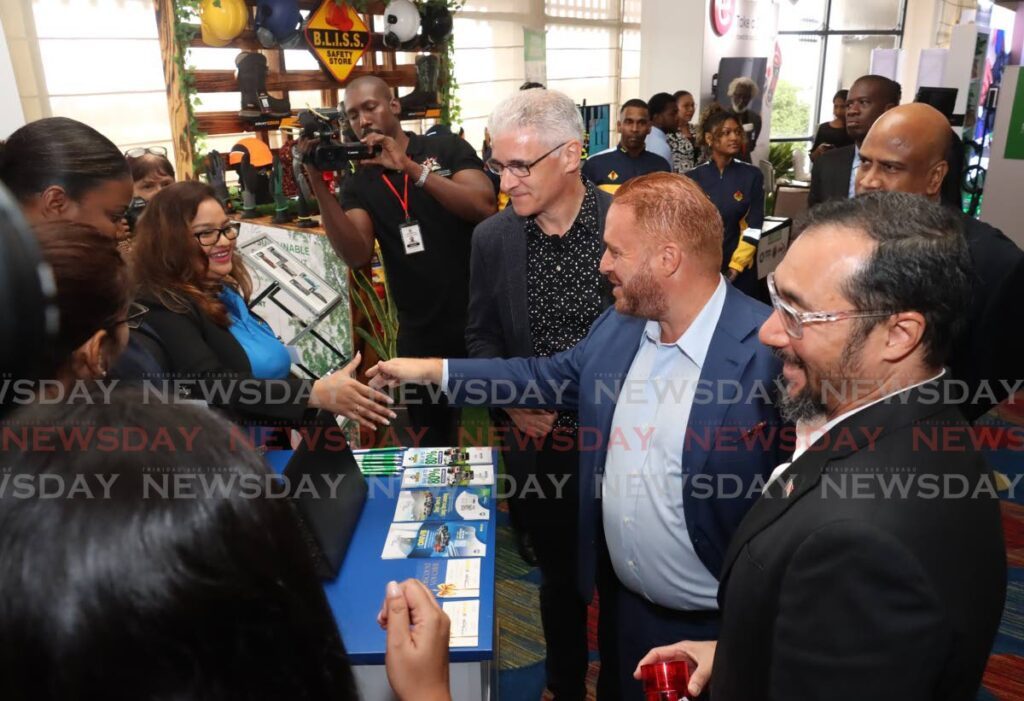Young: EU's carbon-use tax regime not equitable

Energy minister Stuart Young is questioning the fairness of the European Union's (EU) Carbon Border Adjustment Mechanism (CBAM) which taxes products imported into the union based on levels of carbon used to manufacture them.
Speaking on the first of a three-day Sustainable Energy Conference hosted by the Energy Chamber, at the Trinidad Hilton in Port of Spain, Young said the CBAM will have a negative effect on developing countries which are now beginning to develop their oil and gas sectors.
“CBAM is a tool they (the EU) believe is being used to clean up the global climate, but again it is unfair. The reality is, once again, it is going to hit the smaller communities. It hurts countries like Trinidad and Tobago on our fertiliser production.
“Where is the equity in it? Because those in Europe when the Russia/Ukraine war broke out, the first thing they did was restart every coal plant they could with the worst emissions possible. But now they are to impose these kinds of taxes on us and our producers?”
Young claimed small-island states including Trinidad and Tobago and the rest of Caricom contribute “negligible” amounts of greenhouse gas emissions when compared to larger states, but this region bares the full brunt of the resulting climate change.
It is imperative for the region to become an advocate for transition for the survival of the region, but small-island states should not bear the full responsibility of climate change, the minister added.
“That responsibility is not really one that lies on us here in this region, but one that needs to be carried by the wealthy, developed and developing countries who are the main emitters,” he said.
“Unfortunately at these conferences, people shy away from facing that reality and calling out those who are really responsible and need to cut back on their emissions.”
He said while the technology for green projects are becoming more readily available, funding remains a challenge.
Noting challenges in Barbados on its electrical grids, as an example, which have been put under pressure from excess energy from solar assets, Young said significant investment into refurbishing energy grids would be needed to take the added power supply.
“We have probably one of the most sophisticated electric grids in the whole Caricom region. But the reality is to bring in feed-in solar off rooftops, around the country, your grid has to be able to take it. Who is going to upgrade the grid? Who is going to put those substations that allow the power feed from each roof top in, to then be regulated and put out to the national grid?
“It is estimated that Caribbean islands will need to add four gigawatts of renewable energy capacity, requiring about US$9 billion in additional investment to comply. This is no small financial feat.”
Young added that funding is also a challenge as mechanisms which promised to assist with green funding have not yet been able to fulfil their promises.
“The industrialized and developed countries have pledged to provide developing countries with finance to make the green transition. To a large extent, this has not materialised.”
“The global climate fund established to provide climate change financing to developing countries has failed to adequately operationalise its commitment.”
Still, Young said TT remains committed to meeting its obligations and dealing with the challenge of climate change. He mentioned the Brechin Castle Solar Farm which promises to provide up to 122 MWp of renewable energy, the equivalent of powering more than 31,000 homes per year when it becomes operational in 2025. He once again hinted at going to parliament with more projects that would allow TT to meet its requirements of transition.
“Individually countries have been pursuing their own plans of action but what is required is a more cohesive plan of action for the Caribbean.”

Comments
"Young: EU’s carbon-use tax regime not equitable"